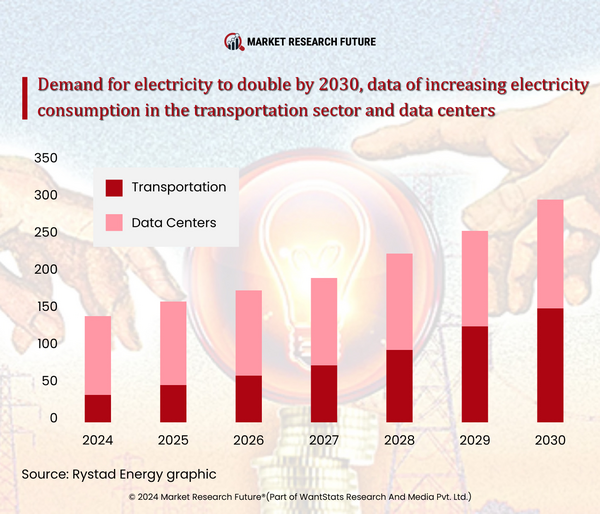U.S Electricity Demand to Get Double with AI and EV by 2030
Electrification in the energy sector will ramp up in the United States in 2024. The nation aims to set up data centers and increase the production of electric vehicles, citing the green energy transition. Both activities demand a high electricity supply for better results. Hence, the United States aims to increase electricity demand for positive outcomes in the future.
Based on a survey by the National Renewable Energy Laboratory (NREL) in 2024, electricity demands in the United States can ramp up to 290 TWh (terawatt-hours). This is due to the growing demand for electric vehicles and data centers in the United States. Advanced data centers and cloud computing require artificial intelligence. However, carrying out large amounts of computing with artificial intelligence requires heavy electricity. Thus, it leads to a significant increase in data centers' electricity consumption.
Similarly, electrification in the transportation sector is the new standard way to reduce carbon emissions. Researchers cite that electric vehicles can reduce carbon emissions and significantly increase the progress of the clean energy transition. Hence, it boosts the wide adoption of electric vehicles in the market.
There is strong demand for electric vehicles in the automotive market, but sales are declining. There are many reasons, like lack of charging infrastructure, battery life, high cost of vehicles, and others that affect the sales of electric vehicles. The downward momentum in the sales of electric vehicles affects the production sector. At the beginning of 2024, the United States recently started imposing extra tariffs on Chinese electric vehicles. This would lead to a decline in the importation of Chinese electric vehicles. Hence, to meet consumers' demand for electric vehicles, the United States needs to improve its electric vehicle manufacturing. In a strategic move, the United States plans to reenergize the United States in manufacturing of electric vehicles. This will increase the consumption of electricity.
Additionally, the United States plans to generate electricity to keep the climate change goals intact. Therefore, renewable energy sources like wind and solar are important for electricity generation. There is a significant share of electricity from nuclear power plants in the United States. Hence, the United States looks forward to a lower carbon footprint and less dependency on coal for electricity.






